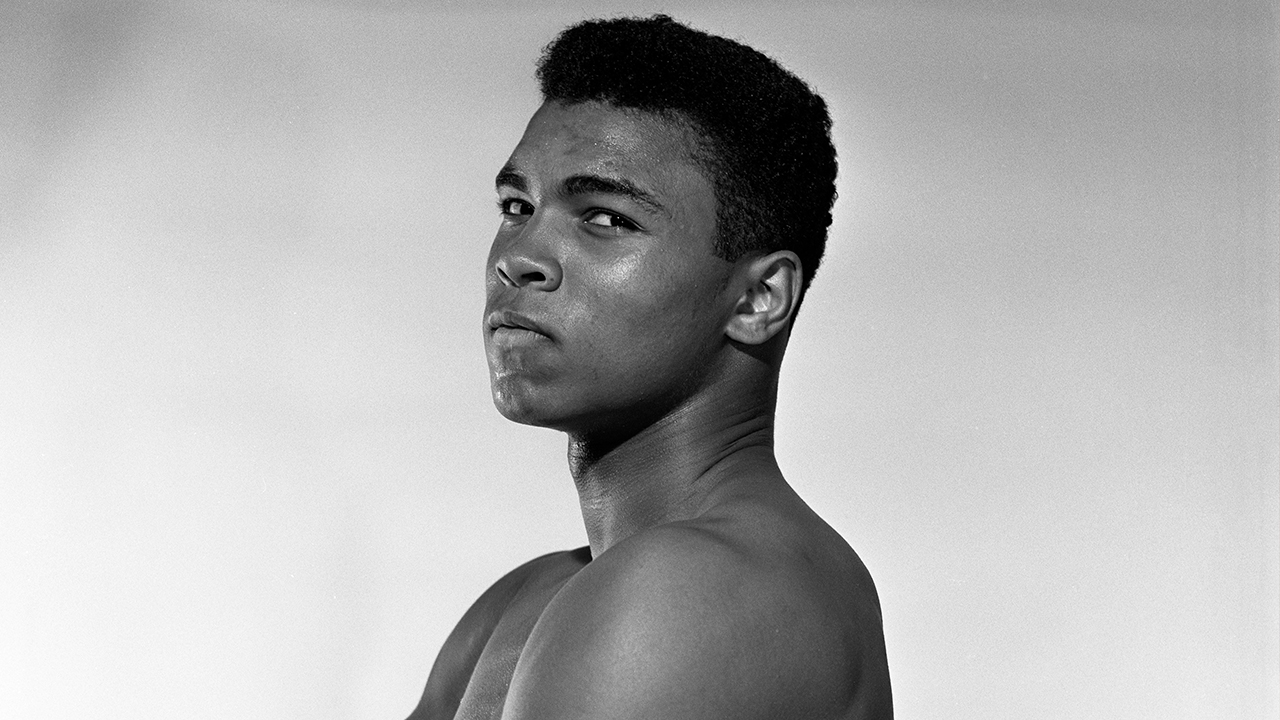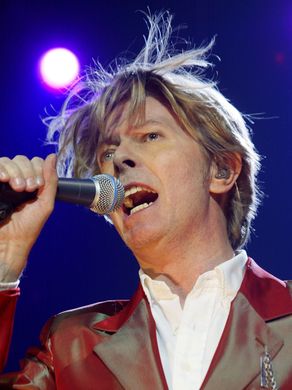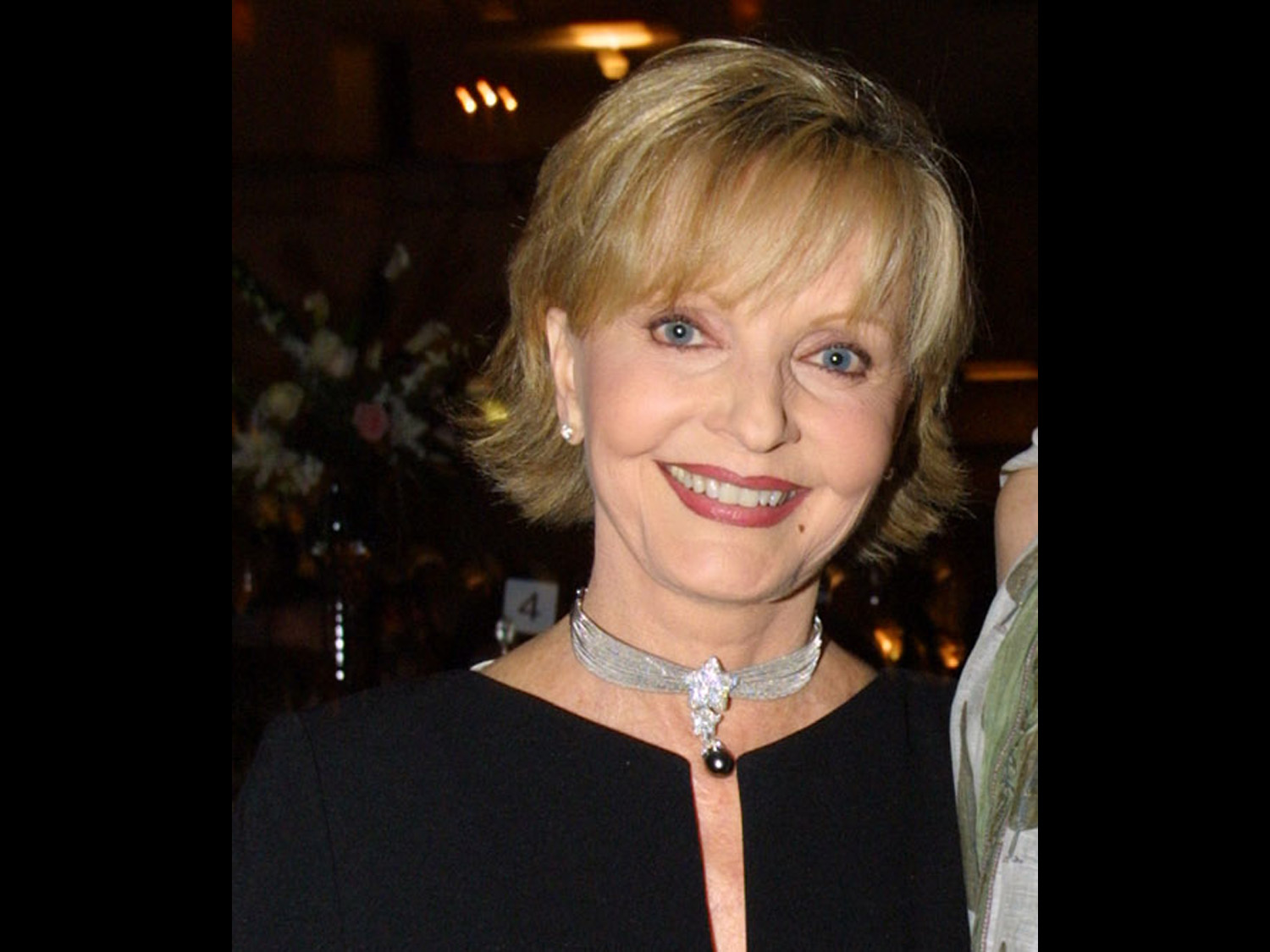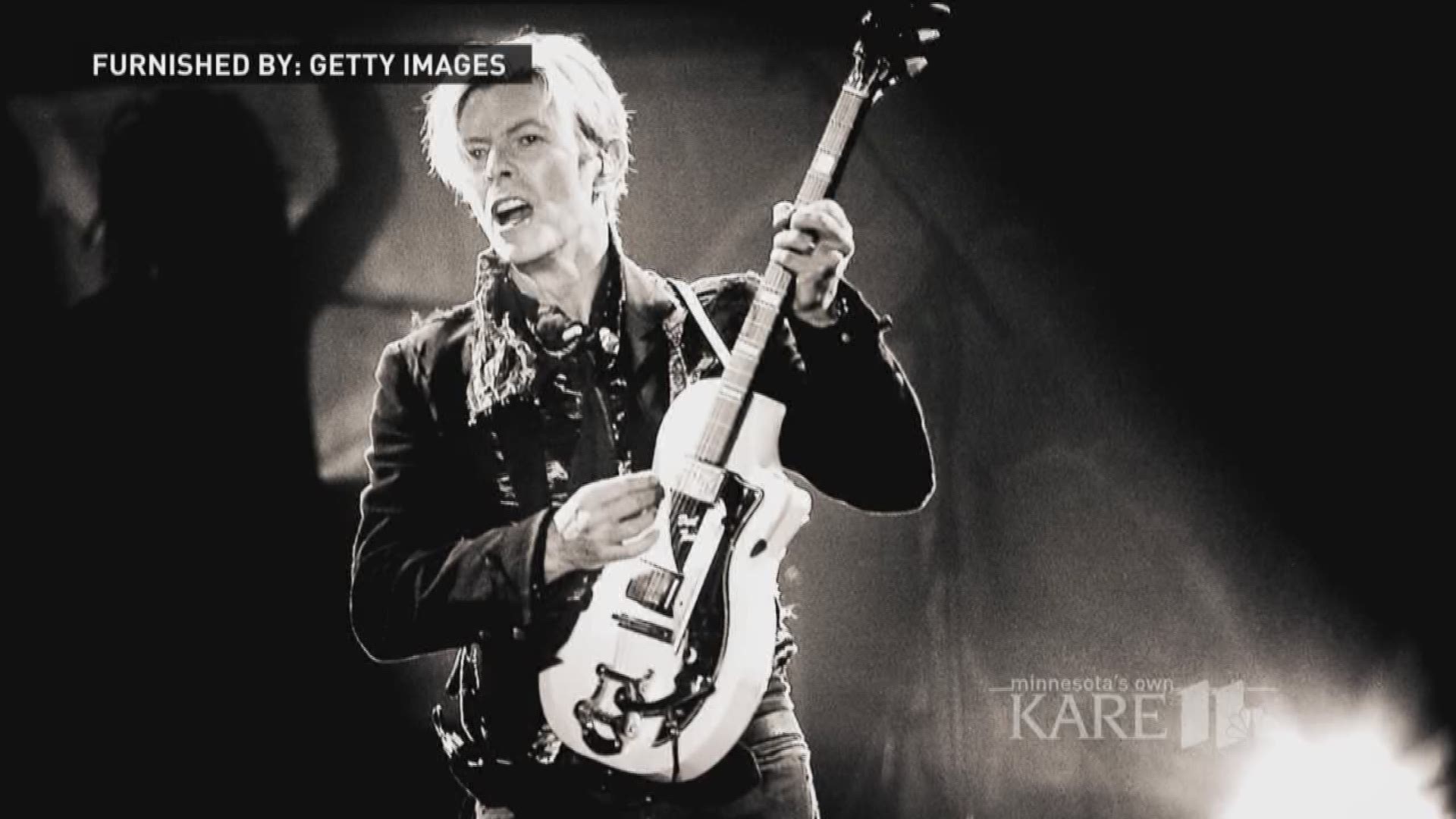Their lives were filled with unparalleled accomplishments, fame and some tough times to overcome.
Take a look back in memoriam of 16 world leaders, celebrities, athletes and other notables who died in 2016:
Muhammad Ali (Jan. 17, 1942 - June 3, 2016)
Muhammad Ali was widely hailed as the greatest heavyweight boxer in the sport’s history. Born Cassius Clay, Ali changed to a Muslim name and refused, on religious grounds, to be drafted into the military during the Vietnam War. His opposition to the war cost him the belt and led to a three-year ban from boxing. His conviction for dodging the draft was overturned by the Supreme Court in 1971.
Ali's prowess in the ring and his personality and social activism make him one of the most recognizable sports figures of the last century. He secured an Olympic gold medal in the 1960 Summer Games and became one of the youngest heavyweight champions of all time, stunning the boxing world with a knockout of Sonny Liston to claim the title in 1964 at age 22.
It marked the first of three times Ali would win the heavyweight title. He became the only heavyweight to win the crown on three occasions. Ali retired from boxing in 1981 with a 56-5 record, three of the losses coming in his final four fights. He had 37 knockouts. After his retirement, he concentrated on philanthropy and social activism. He died of medical complications related to Parkinson's disease at age 74.

David Bowie (Jan. 8, 1947 - Jan. 10, 2016)
Bowie was a transformative figure and an ever-evolving one, a shape-shifter who remained constant in his dedication to exploring, and defining, new forms of expression.
On tour and through his music, the legendary singer slipped in and out of various personas and alter egos: most famously, the androgynous Ziggy Stardust, eccentric Aladdin Sane and drug-fueled The Thin White Duke, created during his mid-'70s Young Americans era. After hitting critical and commercial highs in the 1980s with albums such as Tonight and Scary Monsters (and Super Creeps), Bowie continued to reinvent himself artistically to varying degrees of success.
Unlike many of the myriad performers he influenced — among them female superstars such as Madonna and Lady Gaga — Bowie remained an elusive figure, as private in personal matters as he was charismatic as an entertainer. By turns androgynous and dapper, rugged and ethereal, he kept admirers guessing in a way that would be unimaginable for an icon coming up in the age of social media. He died of cancer just days after his 69th birthday.

Fidel Castro (Aug. 13, 1926 - Nov. 25, 2016)
During his nearly half-century in power, Fidel Castro helped bring the world to the brink of nuclear war, tormented 11 American presidents and exerted almost total control over the last remaining communist government in the Western Hemisphere. Few other world leaders in history could boast the longevity or influence of the iconic bearded, cigar-chewing Cuban dictator.
For 47 years, Castro maintained his grip over the island nation by forging close bonds with the Soviet Union, Venezuela and China, inspiring a wave of anti-American leaders throughout Latin America along the way. Despite years of economic difficulties following the fall of the Soviet Union, Castro still held extraordinary sway over many of his people. “Fidelismo,” or a kind of personality cult around Castro, managed to survive. Raúl Castro succeeded his older brother as Cuban president in 2008. After years of failing health, Fidel Castro died at age 90.
Patty Duke (Dec. 14, 1946 - March 29, 2016)
Patty Duke, who died at age 69, will be remembered as the teen who won an Oscar for The Miracle Worker and later played "identical cousins" in her own TV sitcom.
Duke won an Academy Award for Best Supporting Actress for her role as the blind-and-deaf American icon Helen Keller, first on stage and later in the 1962 film, both of which told the story of how Keller learned to communicate as a child through her tutor Anne Sullivan (Anne Bancroft).
But Duke really charmed her way into American pop culture in 1963, when she was given her own series.
The Patty Duke Show, which ran from 1963 to 1966, was hard work: She played both characters, Patricia "Patty" Lane, a "typical" rock 'n roll American teenager who occasionally got into minor trouble at school and home, and Catherine "Cathy" Lane, her more well-behaved cousin from Scotland who adores "a minuet, the Ballet Russes and Crepe Suzette."
Acclaimed for her acting (her career dates back to the late 1950s), Duke became known in later life as an advocate for mental health issues, after she was diagnosed with bipolar disorder in 1982 and wrote about it in her 1987 autobiography.
Besides appearing on stage and screen, Duke even had success as a singer, with two Top 40 hits in 1965, Don't Just Stand There and Say Something Funny. She also wrote two books, Call Me Anna, and Brilliant Madness: Living with Manic Depressive Illness. And she served as president of the actors union, the Screen Actors Guild, from 1983 to 1988.
John Glenn (July 18, 1921 - Dec. 8, 2016)
John Glenn, the first American to orbit the earth, and later a four-term U.S. senator from Ohio, died at age 95.
To understand why John Glenn became so important in America, it is important to remember how badly the United States was losing the space race in the early 1960s. The Soviet Union had pulled ahead in this Cold War battle when it launched Sputnik, the first man-made object to be placed into orbit. It then made a mockery of the American program by sending the first human being, Yuri Gagarin, into orbit. Then the Soviets sent a second cosmonaut into orbit.
So all of America was watching at 9:47 in the morning on Feb. 20, 1962. Sitting in the cramped quarters of the Friendship 7 spacecraft, Glenn took off from Cape Canaveral. Scott Carpenter, the backup astronaut for the mission, famously said: “Godspeed, John Glenn.”
Astronaut Glenn climbed into space, circled the globe three times, and then dropped down into the Atlantic Ocean. The flight took all of 4 hours, 55 minutes and 23 seconds, but it changed the space race and restored American pride.

Florence Henderson (Feb. 14, 1934 - Nov. 24, 2016)
Although her best-known role as the cheerful matriarch of The Brady Bunch ran for only five seasons, it lived on in syndication for decades, cementing Florence Henderson's status as one of TV's most beloved moms.
There were spinoffs and reunion specials like 1977's The Brady Bunch Hour, 1981's The Brady Brides and The Bradys in 1990, a Fuller House-style outing that featured the marriages and families of the six grown Brady children. She also joined the cast of the 1995 spoof The Brady Bunch Movie, playing Grandma Brady opposite Cheers star Shelley Long as Carol.
As her TV career blossomed with The Brady Bunch, Henderson also began to make frequent TV guest appearances. She was the first woman to host The Tonight Show for the vacationing Johnny Carson.
After The Brady Bunch ended its first run, Henderson alternated her appearances in revivals of the show with guest appearances on other programs, including Hart to Hart, Fantasy Island and The Love Boat.
In later years she made guest appearances on such shows as Roseanne, Ally McBeal and The King of Queens. Henderson died at age 82.

Gwen Ifill (Sept. 29, 1955 - Nov. 14, 2016)
Known as a trailblazer in many ways, Gwen Ifill was one of the nation's most prominent journalists. She worked as moderator and managing editor of Washington Week, a weekly political discussion television show. Ifill was also managing editor of PBS NewsHour, an hour-long evening newscast she co-anchored with Judy Woodruff. In 2009, she also wrote a book about President Obama, The Breakthrough: Politics and Race in the Age of Obama.
Ifill covered seven presidential campaigns in her career and was the first African-American female journalist to moderate a vice-presidential debate. In 2004, she moderated the debate between Dick Cheney and John Edwards, and the 2008 debate between Joe Biden and Sarah Palin. She died at age 61 after several months of cancer treatment.
Harper Lee (April 28, 1926 - Feb. 19, 2016)
Nelle Harper Lee grew up to write one of the 20th century's most culture-changing novels: To Kill a Mockingbird. It won the Pulitzer Prize, has sold more than 30 million copies in English, remains in print (selling more than a million copies a year) and in every school in America, and, until last year, was her only book.
After Mockingbird was published, after the Oscar-winning movie starring Gregory Peck came out in 1962, Lee stopped talking to the press, went home to Monroeville, Ala., and closed her door. She kept it closed for decades, emerging only occasionally to write something for Oprah Winfrey's magazine, or to receive the 2007 Presidential Medal of Freedom from President George W. Bush in the White House.
After years of being left alone, Lee was catapulted back into the public eye in 2015 with the release of Go Set a Watchman, a “newly discovered” novel she wrote in the 1950s and only the second book from her. The controversy over the novel, and worldwide publicity over the re-emergence of the elderly writer, made Watchman an instant best seller. Lee died at age 89.

Arnold Palmer (Sept. 10, 1929 - Sept. 25, 2016)
Arnold Palmer became one of the best known sports figures. He was a telegenic golfer who burst out of black-and-white television sets in the late 1950s and into the 1960s and took the game to the masses.
Palmer, who died at age 87, was the accessible common man who became one of the sport's best players, as well as a successful businessman, philanthropist, trailblazing advertising spokesman, talented golf course designer and experienced aviator.
Palmer won the Vardon Trophy for lowest scoring average on the PGA Tour four times, played on six Ryder Cup teams and was captain twice.
He received virtually every national award in golf and was the "Athlete of the Decade" for the 1960s in a national Associated Press poll. Palmer, who helped found the Golf Channel decades later, also helped usher in the Champions Tour, where he won 10 times, including five majors.

Prince (June 7, 1958 - April 21, 2016)
Like all great artists, Prince was himself a synthesizer of influences; his ranged from Sly Stone to Joni Mitchell to Todd Rundgren.
The music he produced as a result — as a singer, songwriter, producer and multi-instrumentalist — defied genre, blending a mastery of pop hooks and funk grooves on singles that could be as lush as the gospel-tinged Purple Rain, as muscular and rocking as Let's Go Crazy and as ferociously propulsive as When Doves Cry — and that was just on one album, 1984's commercial behemoth Purple Rain.
Prince, a 2004 Rock Hall of Fame inductee, won seven Grammy Awards. He also won a best-original-song Oscar for his 1984 film Purple Rain.
More recently, the social consciousness that had figured into his music became prominent. His 2015 song Baltimore responded to the death of Freddie Gray and related, racially charged events with a defiantly positive spirit. The prodigy and provocateur died at age 57 at his Paisley Park compound in the Minneapolis suburb of Chanhassen.
Nancy Reagan (July 6, 1921 - March 6, 2016)
Former first lady Nancy Reagan will be remembered as the indispensable partner and protector of the Ronald Reagan, the nation's 40th president, who became a fierce advocate in the fight against Alzheimer's disease.
After the frugal Carter years of turned-down thermostats and cardigan sweaters, Nancy Reagan moved into the White House determined, as she later wrote, "to reclaim some of the stature and dignity of the building."
The first lady raised money to renovate the executive mansion, which had grown shabby. She ordered the first complete set of White House china since the Truman administration. She hosted lavish parties and 57 state dinners, inviting old Hollywood pals like Frank Sinatra and close friend Merv Griffin. Top fashion designers like Halston, Adolfo and Galanos provided her size 4 evening gowns, often in her signature "Reagan Red."
After a second term that saw the president survive colon cancer surgery and the first lady undergo a mastectomy for breast cancer, the Reagans retired to their California ranch. When she watched her soulmate taken "to a distant place where I can no longer reach him," Nancy Reagan spoke out in favor of embryonic stem cell research and its promise in treating Alzheimer's. That put her at odds with many, including President George W. Bush, in what had become "the party of Reagan." She died at age 94, nearly a dozen years after her husband passed away.

Janet Reno (July 21, 1938 - Nov. 7, 2016)
Janet Reno, who died at age 78, was the first woman to serve as U.S. attorney general. Her tenure spanned some of the most tumultuous periods in American life.
The second-longest serving attorney general in history, Reno’s Justice Department was thrust into a nearly unending series of tests, from the government’s deadly raid on the Branch Davidian compound near Waco, Texas, and the first World Trade Center attack investigation to the bombing of the Oklahoma City federal building and the international custody battle for a Cuban boy named Elian Gonzalez.
Her improbable political survival during a grueling eight years in office, while also battling Parkinson’s disease, may be the most striking aspect of her tenure.
Reno's quiet, no-nonsense manner ultimately was celebrated with a regular parody on Saturday Night Live, called “Janet Reno’s Dance Party.’’ The skit featured Will Ferrell, dressed in a Reno standard royal blue dress and pearls. She embraced the parody and joined the cast to share in the fun.
Reno, who unsuccessfully ran for Florida governor in 2002, never enjoyed dealing with reporters, though when she did it often featured references to her deceased mother, Jane Reno, known as a coarse character who built the family home at the edge of the Florida Everglades.
Asked once how her mother would assess her performance as attorney general, Reno said: "After scoffing, she would have said she was very, very proud of me."
Antonin Scalia (March 11, 1936 - Feb. 13, 2016)
Supreme Court Justice Antonin Scalia was the loquacious leader of the Supreme Court's conservative bloc and a leading force in American life for three decades.
Scalia's sharp intellect and acerbic opinions made him a hero to conservatives and a target for liberals. Yet he also was a close friend to a leader of the court's liberal wing, Justice Ruth Bader Ginsburg.
The first Italian-American to serve on the court when he was named by President Reagan in 1986, “Nino” Scalia established himself as a firm opponent of abortion, gay rights and racial preferences.
During his three decades on the court, Scalia managed to steer the federal judiciary toward his twin theories of “originalism” and “textualism” — strictly reading the Constitution and federal statutes to mean what their authors intended, and nothing more. He died at age 79.
Pat Summitt (June 14, 1952 - June 28, 2016)
Legendary coach Pat Summitt won more games than anyone in college basketball history.
The Tennessee native drew upon her early experiences of learning to expect the most out of herself as a guidepost to her coaching career.
The coach who never had a losing record in 38 seasons, shocked the sports world in May 2011 when she announced she would continue at the University of Tennessee despite the diagnosis of early onset dementia, Alzheimer's type.
President Obama awarded her the Presidential Medal of Freedom in 2012, recognized, with the Congressional Gold Medal, as the nation’s highest civilian awards. She died at age 64.
Elie Wiesel (Sept. 30, 1928 - July 2, 2016)
Elie Wiesel made Holocaust education his mission in life after surviving the Auschwitz and Buchenwald death camps.
The Wiesel family was deported in 1944 to Auschwitz-Birkenau, where Elie, 15, was separated from his mother and sisters.
He managed to stay with his father for most of World War II as they worked at an Auschwitz sub-camp and were transferred to the Buchenwald camp in Germany in early 1945. But his father died just weeks short of that camp's liberation. His mother and younger sister also did not survive.
Some 11 years after leaving Buchenwald, he wrote Un di Velt Hot Geshvign (And the World Remained Silent), a Yiddish memoir that would become known as Night and be translated into 30 languages. He opted not to let Hollywood touch his book.
In 1978, Jimmy Carter selected Wiesel to lead the President's Commission on the Holocaust, followed two years later by his appointment as chairman of the U.S. Holocaust Memorial Council. His work earned him the Nobel Peace Prize in 1986. Wiesel died at age 87.

Gene Wilder (June 11, 1933 - Aug. 29, 2016)
Gene Wilder brought his deft comedic touch to such unforgettable roles as the charismatic candy man in Willy Wonka and the Chocolate Factory and the obsessed scientist of Young Frankenstein.
Wilder left an indelible impression through his performances from Wonka to the boozy gunslinger in Blazing Saddles and, in later years, screwball roles in comedies including Silver Streak and Stir Crazy.
Born Jerome Silberman on Milwaukee's west side on June 11, 1933, Wilder started entertaining when he was 7 by performing to make his ailing mother laugh. Then he got interested in theater.
The role of nervous accountant Leo Bloom in Brooks' 1968 comedy The Producers — put Wilder in the front ranks of comic actors, and forever linked him with Mel Brooks. It also earned him an Oscar nomination for best supporting actor. In the 2000s, Wilder largely stopped acting, apart from some personal appearances, telling interviewers he'd lost the taste for the modern entertainment industry. He died at age 83.

